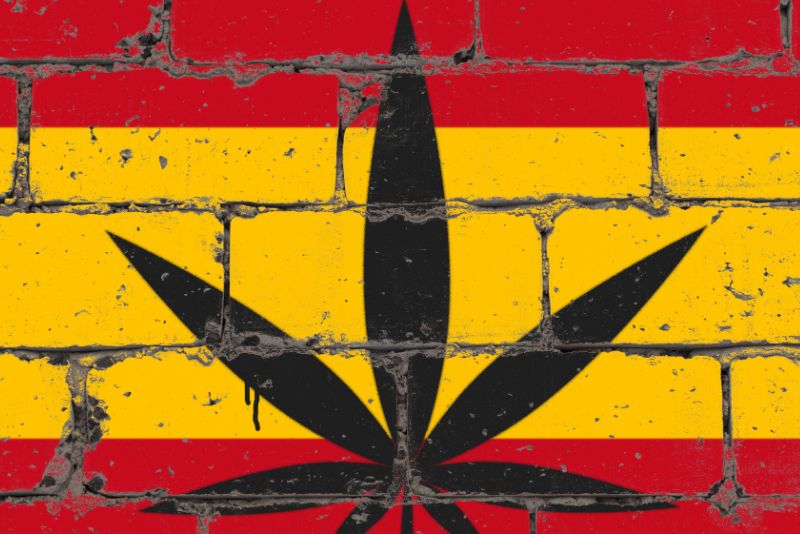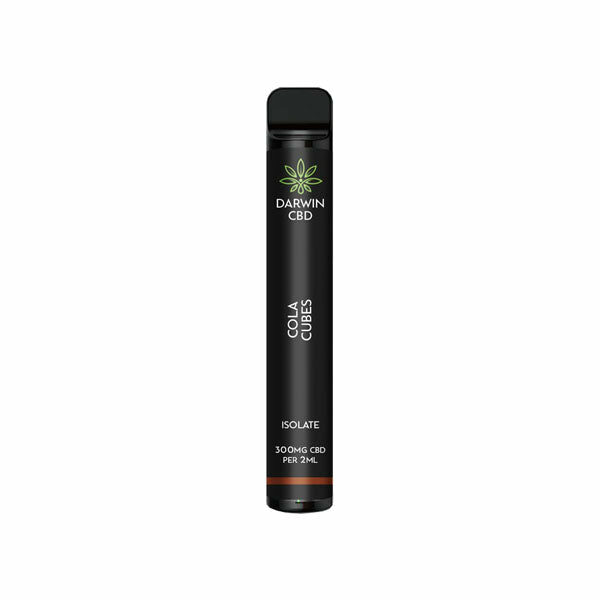Is CBD Legal In Spain? – Here Are The Facts!
Could Spain Regulate Themselves Out Of Lucrative CBD Industry?
Spain has the makings of a strong CBD industry, however government intransigence has led some interested parties to question whether the country might miss out.
At the same time there appears to be evidence that the country is taking a different path to developing the sector.
Spain has had long associations with the cultivation of cannabis and cannabis culture in general. Spain is home to Spannabis, an annual cannabis event that has been held in Barcelona since 2002.
The El Pais online reports this week that although much of the cultivation of cannabis activity was illegal, a great deal of expertise was built up in growing the plants, which, of course, includes the non-psychoactive CBD.
A Brief Summary Of CBD
Cannabidiol (CBD) is one of 113 cannabinoids that comes from the cannabisplant. CBD is extracted from the cannabis plant in such a way to make it isolated from other cannabidoids. It is separated from THC most importantly, the psychoactive element in cannabis. CBD is then added to a carrier oil to make CBD oil.
Is CBD safe?
As of yet there is no reported cases of CBD oil related deaths anywhere across the world. Medical professionals believe that it is near impossible to overdose on CBD products. While the CBD oil market is rising it is important to shop around and buy from trusted sources. If you are not sure if a CBD product is safe always read to the label beforehand. The amount of CBD will state how much CBD it contains.
Most CBD products should specify if it is third party tested on their labels. The batch number and ingredients should also be visible on the label. Be sure to check for these before taking CBD.
It may be clear that CBD is safe to consume, people are still wary that it may contain other risks and side effects.
Side Effects of CBD
Common side effects of CBD are:
- Dry mouth
- Diarrhoea
- Drowsiness
- Changes in appetite
Dry Mouth
One of the most common side effects of CBD oil is cottonmouth, or to give it its scientific name, xerostomia. Ths is due to CBD affecting to salivary glands in the mouth, preventing them from producing a regular amount of saliva.
Diarrhoea
This side effect is not caused by the CBD itself, but the carrier oil that is is used to created CDB oil. Some oils can affect the gastrointestinal tract of users, this may lead to diarrhoea. This unfortunate side effect can be avoid by changing to a topical if suitable.
Drowsiness
CBD oil is used by many people to help with insomnia, so it should come as no surprise that it may cause some drowsiness in patients. This side effect can be solved by simple trying a different dosage of CBD, trying a new product or simply adjusting your schedule so you are taking your CBD before bed.
Changes in appetite
CBD is known to affect a person’s appetite. It may cause a larger appetite in most people, however some have noted a decrease in appetite.
Some Benefits Of CBD Oil
Research shows CBD may help with:
- Epilepsy
- Anti Anxiety
- Sleeping
- Pain
- Depression
Epilepsy
Some studies have shown promising results, that CBD oil may be a good way to treat epilepsy in some patients. By using CBD oil the severity of seizures in children and young adults may be reduced.
Anti Anxiety
Cannabidiol affects the CB1 and CB2 receptors in the brain. It can also affect the serotonin receptor (5HT)1a. Changing how these receptors work is believed to change the effects of anxiety in patients.
Sleeping
Insomnia can be caused by a range of different health issues such as anxiety, chronic pain and depression. Cannabidiol has been used by some people as a way to both fall asleep and stay asleep.
Pain
CBD directly interacts with the CB1 and CB2 receptors in the body so people have been using cannabidiol as a way to modulate pain, this is due to the fact that these receptors are responsible for modulating pain in the body. CBD can also work as an anti-inflammatory, which means it may reduce pain associated with swollen areas.
Depression
CBD oil for depression is being closely studied. Researchers are unaware if CBD oil targets the root causes of depression, it may help to reduce anxiety and cognitive impairment associated with it.
Government Reluctant To Regulate CBD
The newspaper reports that the government continues to maintain strict regulation over medicinal cannabis, while at the same time there is some evidence of liaison with selective private interests about developing the sector while marginalising smaller operators.
Spain has some of the world most active research teams looking into cannabis, even though it is still illegal for medicinal and recreational purposes.
A parliamentary commission for the drug legal status supported by the anti-austerity party Podemos and center-right Cuidadanos has failed to catch flight in Congress.
Meanwhile, in other countries, there is a different approach, with more recognition. Some are concerned that Spain will not be at the starting line when the starting gun fires.
Now legal in Canada and much of the US, the investment community and big corporations are not ignoring an industry on the cusp of greater legitimisation.
In Spain, there is recognised quality in development of seed banks and a highly suitable climate, and smaller companies are key to be participants, once legitimisation occurs.
Potential California Of The South
“We could have Europe main plantation here and be the California of the south,†says Pedro Pérez, president of the La Santa cannabis association in Madrid.
Left-wing Podemos party leader Pablo Iglesias is more focused on the economic arguments in favour of legalization. “I have no doubt that it will be regulated. Legalisation for medicinal purposes is justice. The problem now is whether we do it before other countries.
We have to do it now! If we are ready, Spain could receive huge operating and tax revenues. Spain could become the Canada of Europe. and achieving this could be beneficial for everyone, not just four pharmaceutical millionaires.â€
When asked about the prospect of legalisation for medicinal purposes in parliament recently, the government stuck to its official line, answering that the scientific evidence was “insufficient, we are awaiting a conclusion from the World Health Organization (WHO) on the matter.â€
Could New EU Rules Derail UK CBD Market Just As It Set To Take Off In The US?
Contradictory Behaviour By The Government?
Concerning medicinal use, the government has also stuck to the negative view of the Spanish Medical Agency (AEMPS) – which is against the prescribed therapeutic use of cannabis in the form of flowers or extracts.
AEMPS head pharmacist MarÃa Jesús Lamas says “Our job is to determine the benefit/risk ratio of each new medicine that we receive for examination, which means deciding whether the benefits outweigh the side-effects,†she says. “None of the main active ingredients of cannabis have shown in clinical trials to be better than their pharmaceutical counterparts. More trials are needed. Cannabis lacks scientific evidence. And it doesnt have the necessary quality, safeguards or effectiveness.â€
“Its effectiveness has not been evaluated objectively, measurably, quantifiably and in a way that can be reproduced. Something that makes you feel better does not necessarily have to be a medicine. […] There is no scientific evidence that justifies making cannabis a medicine. We are a technical body. The government in power is the one that decides.â€
El Pais however points to a paradox in the government approach – that while the AEMPS is against medicinal cannabis, it has authorised cultivation of cannabis to be exported for therapeutic use to a Spanish company with a long history of producing opioids for pharmaceuticals – Alcaliber, who also produce a third of the world morphine.
Alcaliber specialist subsidiary Linneo Health is in possession of the license to grow cannabis in Spain ahead of 100 other applications, something the media outlet refers to as a mystery.
Conclusion
There is complexity around Spain attitude to medicinal cannabis, with the government perceived as reluctant to regulate in a way that would help mainstream agents participate.
Meanwhile the El Pais newspaper points to the contradiction of government contracting the production and export of cannabis to a pharmaceutical giant, Alcaliber and subsidiary Linneo Health.













